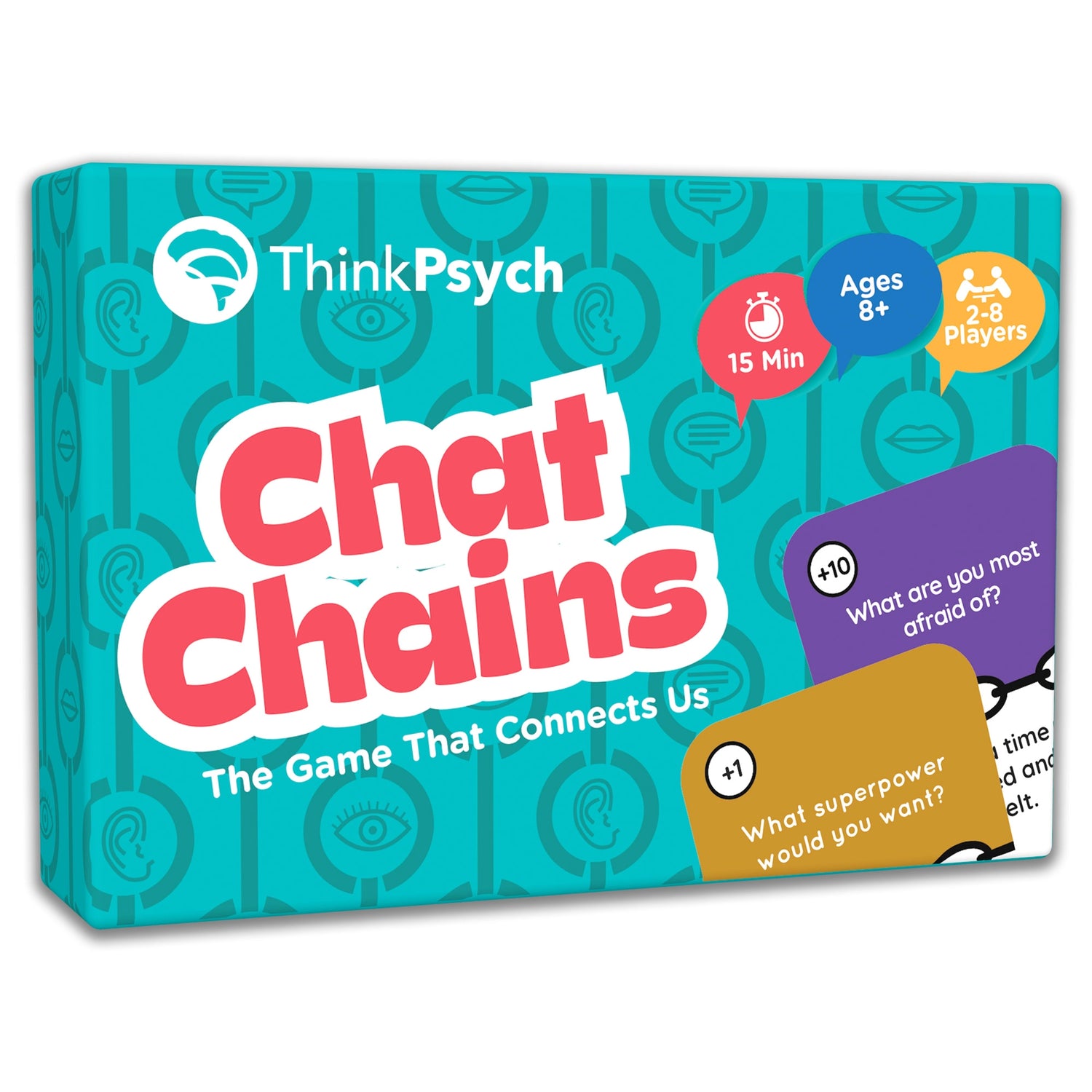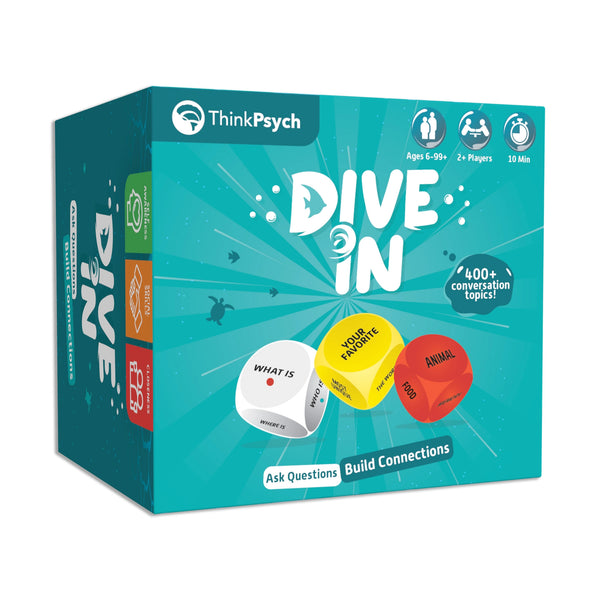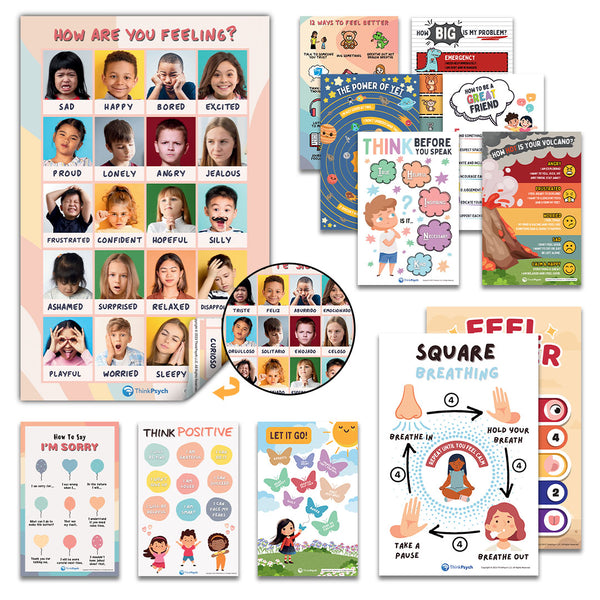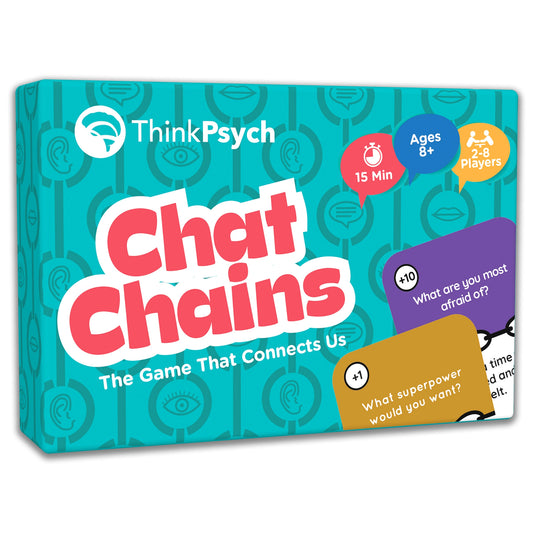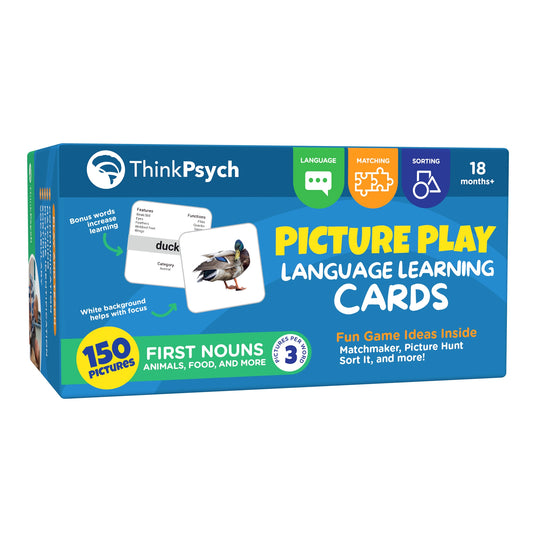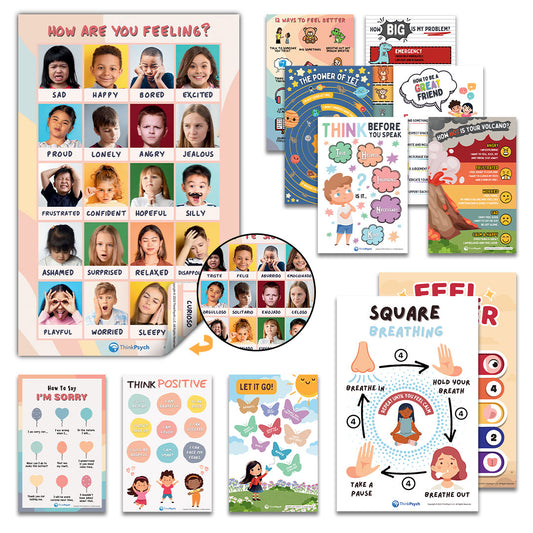
Why Teaching Kids to Ask for Help Matters
Share
Asking for help is hard. We all know it, and we’ve all been there. It can make you feel weak, vulnerable, and even embarrassed. And as new research shows, kids as young as seven can feel this way too.
It’s not surprising, then, that many children struggle to ask for help. They may feel shy or anxious about admitting they don’t know something or need assistance. As a result, some kids can be at risk of falling behind in school and/or failing to take advantage of the resources available to them.
That’s why teaching kids how to ask for help is so important – it helps them develop advocacy skills and sets the foundation for future success.
What Kids Learn From Help-Seeking
When kids ask for help, they learn valuable lessons that can help them in the future. Here are just some of the things they can take away from it:
1. It makes them realize seeking help is a sign of strength.
Contrary to what most people believe, asking for help isn’t a sign of weakness. It requires strength to admit you don’t know something, and it takes courage to reach out.
Teaching kids this important lesson will go a long way in helping them feel comfortable with seeking assistance when they need it. And if we’re honest, it’s something we adults must also be reminded of from time to time.
2. It teaches them how to solve problems.
When kids learn how to ask for help, they also learn the art of problem-solving. They start by recognizing that they need assistance, then think about who can provide it and how. This process helps them develop their critical thinking skills and their ability to evaluate a situation and think of a solution.
3. It builds confidence.
Asking for help gives children a sense of self-assurance and control over their circumstances. Knowing there are people around who can offer support allows children to take ownership of their learning and build confidence in their ability to succeed.
4. It helps establish trust.
By asking for help, kids build trusting relationships with those around them. They learn that it’s okay to rely on others and that people are there to support them when they need it most. These relationships can be essential for future success in their personal and professional lives.
5. It encourages self-advocacy.
When kids learn how to ask for help, they also learn the importance of self-advocacy – which is the ability to speak up and make your needs known. This skill is incredibly important, as it helps them take control of their own lives and advocate for themselves when there’s an issue or a challenge that needs addressing.
6. It helps build empathy.
The most important lesson kids can learn from asking for help is empathy. When they understand what it’s like to be in another person’s shoes, children are more likely to respect the needs of others and show kindness, compassion, and understanding.
This also helps them stay grounded. While help-seeking can bring kids closer to what they want, they should understand that it is not something to be taken for granted. The last thing any parent or teacher wants is for a child to grow up feeling entitled.
Signs That Show Kids Need Help
It’s every educator’s duty to recognize when a child needs help. But it can be difficult to tell, as kids often keep their struggles hidden. Here are some signs that can help you identify when a student needs assistance:
- They don’t understand the material they’re learning in school.
- They seem anxious or overwhelmed by their workload or tasks at hand.
- They have difficulty staying focused and engaged with their work, even when they seem interested in it initially.
- They constantly struggle to complete assignments on time or correctly due to a lack of understanding of the material being learned.
- They have difficulty following instructions or understanding what’s being asked of them.
- They are not mingling with their peers or participating in class activities.
Customer Favorites From Our Store
How to Teach Children to Ask for Help
Asking for help can be hard, but it doesn’t have to be. Here are some tips on how you can encourage your child to ask for help.
Model the behavior.
Parents and educators should model asking-for-help behavior by demonstrating that they themselves feel comfortable doing so. Kids learn a lot from observing the adults around them, so it’s essential to show them that seeking support is nothing to be ashamed of or embarrassed about – but rather something we all do in life.
Create an open dialogue.
Create an open line of communication with the child and tell them it’s okay to come to you when they need help. Make sure they understand that asking for assistance is a sign of strength, not weakness, and encourage them to speak up if they ever feel overwhelmed or confused.
Offer support.
When a child does come to you with an issue or question, offer your full attention and unconditional support. Listen carefully and be patient; it can take time for kids (and adults!) to articulate their thoughts and feelings clearly.
Celebrate success!
Remember to celebrate successes when they come, no matter how small. When a kid asks for help and succeeds, make sure they know that their hard work paid off and give them a pat on the back (or high-five!) to show your appreciation.
Should You Always Respond to a Kid’s Request for Help?
It’s important to note that responding immediately when a child asks for help is not always appropriate. Sometimes, providing assistance too quickly can do more harm than good depending on the situation. It may prevent them from developing their own problem-solving skills and self-reliance.
In these cases, provide guidance rather than answers. Ask questions like “What have you tried so far?” or “How do you think this could be solved?” This approach will encourage the child to explore their options and develop solutions independently.
Conclusion
Overall, teaching kids how to ask for help is a great way to instill important lessons that can stay with them throughout their lifetime. It helps them build confidence, develop critical thinking skills, and foster meaningful relationships – all of which are essential to success.
References:
- Scientific American | Why Kids Are Afraid to Ask for Help: https://www.scientificamerican.com/article/why-kids-are-afraid-to-ask-for-help/
